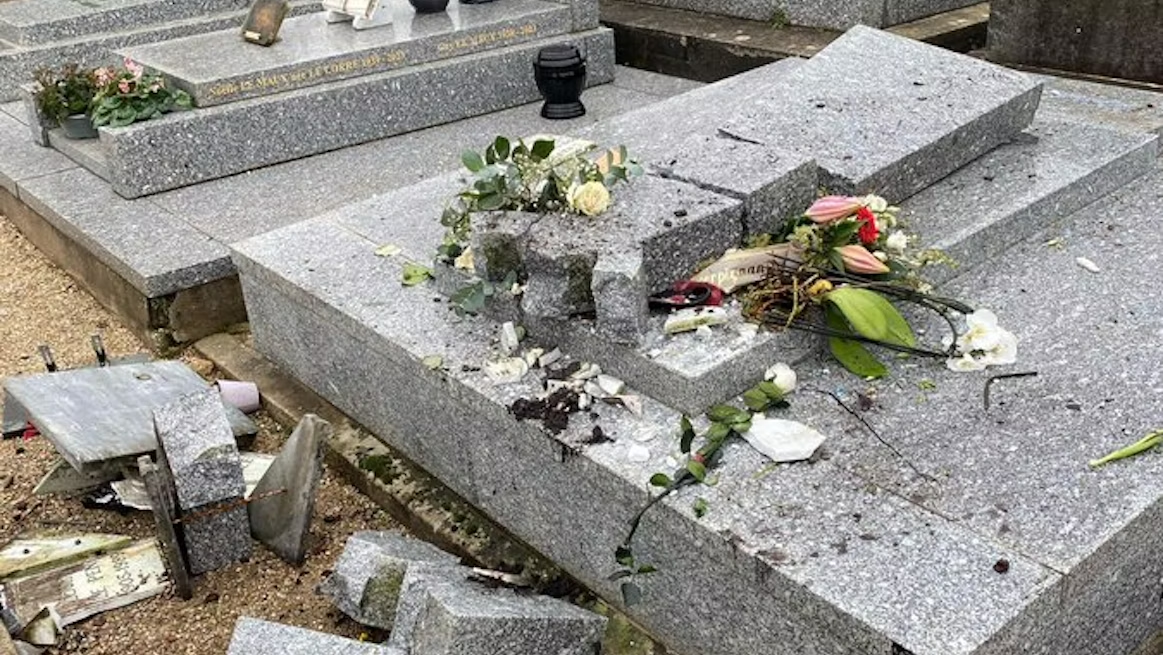
A vote on a law to limit immigration to Germany failed to gain enough support in the parliament —the Bundestag—on Friday, January 31st. However, the debate surrounding the bill was almost entirely focused on the fact that for the second time in three days, the centre-right CDU/CSU had allowed the right-wing Alternative für Deutschland (AfD) party to support its proposals.
The leaders of the two governing parties, the Social Democrats (SPD) and the Greens, put on a show of over-the-top emotional outbursts as they lambasted CDU leader Friedrich Merz for “opening the gates of hell.”
Their harsh criticism was aimed at the fact that a non-binding motion aimed at turning back illegal and undocumented migrants at the nation’s borders was passed on Wednesday—the first time in the history of the Bundestag that the AfD has been involved in gaining a majority. The vote marked a significant shift in German politics, as the centre-right had enabled the so-called firewall to crumble.
This was followed on Friday with the AfD supporting the CDU/CSU’s so-called Influx Limitation Act—a law that would have suspended family reunification for some migrants and granted police further powers to detain illegal migrants and people due for deportation.
The law was rejected, however, with 338 MPs voting for it and 350 rejecting it. Apart from the CDU/CSU and the AfD, the left-wing nationalist Bündnis Sahra Wagenknecht had expressed its support for the bill, as did members of the liberal FDP.
In the debate on Friday, Rolf Mützenich, the leader of the SDP parliamentary group, urged Friedrich Merz to “close the gateway to hell” and restore the ‘firewall’—the cordon sanitaire—against the AfD. The Greens’ foreign minister Annalena Baerbock called the AfD “smirking right-wing extremists,” and warned Merz not to go down the “path of Putin and Orbán.” She derided the migration proposals, saying that the economy “is desperately looking for skilled workers.”
Friedrich Merz defended his actions, emphasising that “there are many who are concerned about democracy, but there are many who are concerned about security and order in this country and expect decisions to be made.”
The motions introduced to the parliament are a response to the tragic knife attack in which a 2-year-old child and a 41-year-old man were killed last week in the city of Aschaffenburg. The incident is part of a troubling trend of knife-related crimes over the past year, predominantly involving Afghan and Syrian migrants—many of whom have evaded deportation due to lenient immigration policies.
Merz said he is forced to accept the votes of the AfD as the ruling parties refuse to find a common solution on toughening asylum laws. He reiterated, however, that he would never cooperate with the AfD, and would not enter into a coalition with them.
Despite the outrage feigned by the SPD and the Greens, a recent survey says 66% of Germans agree with the CDU/CSU’s proposals of rejecting migrants at the border. According to another survey, 48% of respondents don’t have a problem with the AfD’s participation in pushing through tougher migration laws, while only a third say that cooperation should be refused.
During Friday’s debate, AfD’s vice chairman Bernd Baumann criticised the CDU/CSU alliance for copying their migration policies and suddenly wanting to seem tough on migration less than four weeks before the elections.
The establishment parties deplore the AfD, their biggest political rival, which is riding high in the polls, and is expected to finish second in the upcoming national elections at the end of February.
The right-wing party, founded twelve years ago, has gained a lot of support due to its tough stance on immigration, and for calling out the current and previous governments for their incompetent handling of the economy and the energy crisis.
Vilifying both the party and its supporters, the mainstream political forces are actively using both political and legal methods to try and undermine the AfD’s credibility, with prominent politicians even suggesting banning the party outright.
The decision by the parliament on Wednesday to pass a motion with the aid of the AfD sparked such an excessive backlash that radical left-wing protesters have issued death threats against CDU politicians and damaged CDU party offices in different parts of the country. On Thursday evening, as a precaution, all employees of the party headquarters in Berlin were asked to leave the building before evening protests began outside.
Former CDU leader and chancellor Angela Merkel derided her successor Friedrich Merz for cooperating with the AfD, calling his tactical manoeuvre “wrong.” She said democratic parties seeking to prevent terrible attacks like the one in Aschaffenburg must work together “honestly, moderately in tone and on the basis of applicable European law.”
Merkel is responsible for shifting the traditionally conservative CDU to the left and for overseeing the influx of millions of migrants from the Middle East and Africa, resulting in terrorist acts, soaring crime rates, and the creation of no-go zones in larger cities.
The debates this week will surely leave a sour taste in the mouths of both the centre-right and the leftist parties. If the election frontrunner CDU/CSU does indeed intend to ignore the AfD following the elections on February 23rd, it will have to form a government with either the Social Democrats or the Greens, the third and fourth strongest party in the polls.Whether Friedrich Merz sticks to his guns on migration policy remains to be seen.








